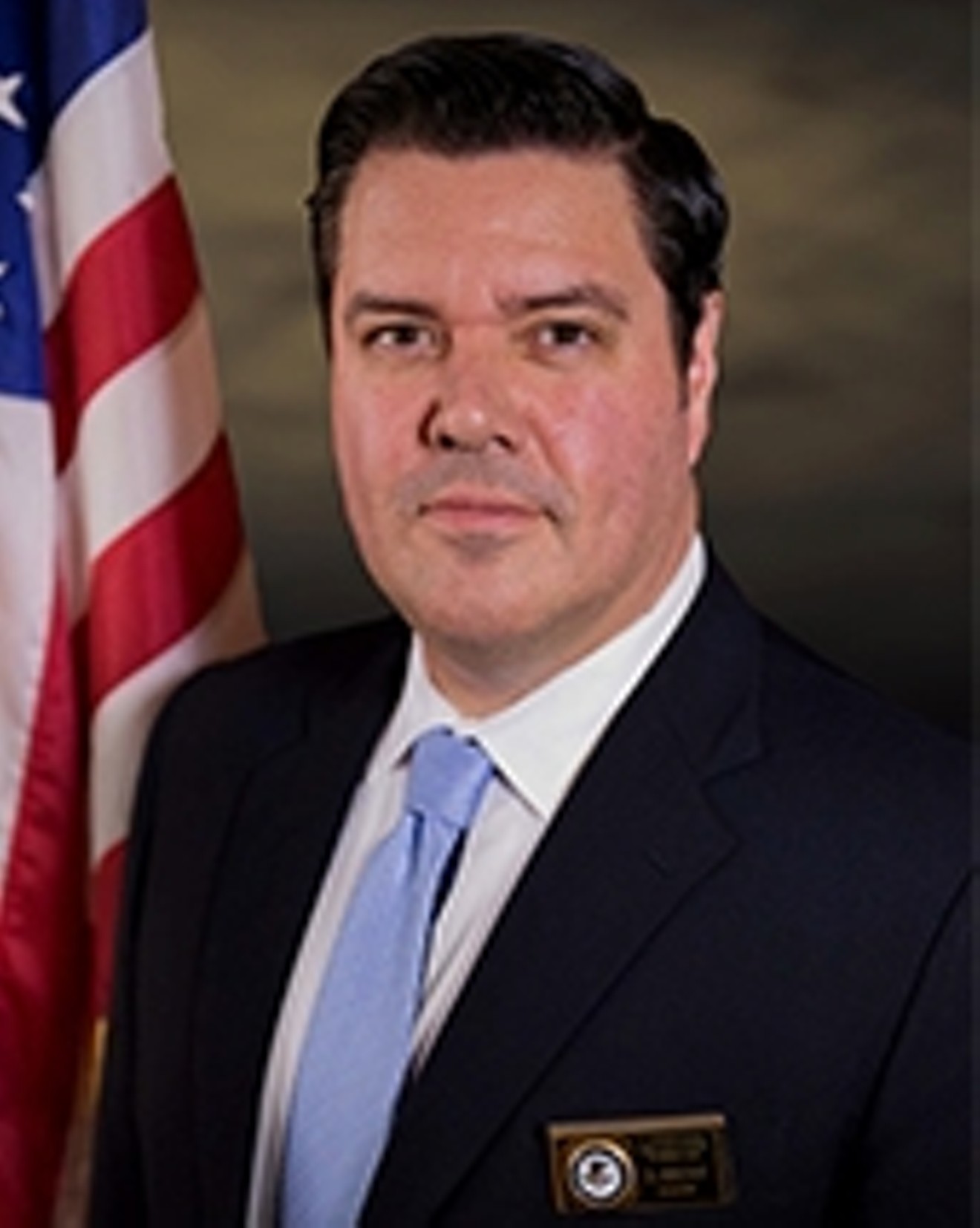Last year, while working as warden at a federal prison in California, he oversaw the implementation of fiercely controversial, ultimately short-lived restrictions on books and mail to inmates that effectively made books prohibitively expensive and difficult to obtain.
He was also named as a defendant in a class-action lawsuit last August against the U.S. government by immigrant detainees housed at the federal prison, who alleged that they suffered inhumane treatment and conditions.
Governor Doug Ducey appointed Shinn to the top ADC job on Monday with a start date of October 21, about two months after embattled former director Chuck Ryan stepped down.
A former Marine, Shinn began working for the Bureau of Prisons in 1991, starting as a legal technician and rising through the ranks to eventually become the assistant director of its program review division.
His last role prior to becoming assistant director was complex warden, a position Shinn held until mid-2018 at the Victorville Federal Correctional Institution.
Victorville was one of just a handful of prisons in which the Federal Bureau of Prisons rolled out the mail and book-restricting policies in 2017 and 2018.
Those policies barred federal inmates from receiving books from the outside, including buying directly from retailers like Amazon. Instead, they had to submit requests to buy books through a vendor, who was never disclosed, and who charged a 30 percent markup along with shipping fees.
The cost of books skyrocketed, prompting some inmates to cease ordering books entirely, the Appeal reported. An inmate at Victorville told the site that under the new system, two books with price tags of less than $5 each ended up costing a total of $42.
In several memos (viewable at the end of this story) from January 2018 obtained by the nonprofit CAN-DO Foundation, Shinn cited illegal drugs as justification for the new federal policy, saying it would take effect in February 2018.

Governor Doug Ducey tapped David Shinn to lead Arizona's struggling Department of Corrections.
State of Arizona
It then laid out arduous guidelines for inmates to order books through the new vendor. "Books from a publisher, bookstore, book club, or friends and family may no longer be received through the mail," it specified. Inmates could order no more than five softcover books at a time.
Other, contemporaneous memos from Shinn cracked down on inmate mail and telephone calls, again citing "multiple occurrences involving illicit drugs."
Under those new restrictions, if an inmate finished a call, he would have to wait another hour before making another. Any general mail and envelopes had to be on paper that was white, among other rules.
Anything that wasn't white, "and/or contains drawings, writings, etc., made in crayon or marker, the correspondence will not be accepted and/or rejected," the memo read. "All 'homemade' greeting cards will be rejected," it added. The new rules also mandated that legal envelopes from attorneys be photocopied, and inmates would not receive the original envelopes.
In April 2018, California Congresswoman Karen Bass grilled former Bureau of Prisons Director Mark Inch over the new policies, and a month later, following scrutiny from the Washington Post, the agency abruptly abandoned them.
It is not clear to what extent Shinn was involved in developing those policies or in making Victorville one of the first prisons to roll them out. Shinn did not respond by deadline to a request for comment left through the Bureau of Prisons' media line, which, shortly before deadline, said it forwarded the request to him.
Also during Shinn's tenure at Victorville, the union representing guards voiced concerns that the prison was understaffed, especially in the prison's medical unit.
In June 2018, the Bureau of Prisons agreed with Immigration and Customs Enforcement to temporarily house nearly 1,000 adult immigrants at Victorville. Among the issues that arose with that arrangement were complaints from immigration attorneys of limited access to clients. At least one case of chickenpox was reported, as was an outbreak of scabies among the ICE population.
In August of that year, a group of detainees, represented in part by the American Civil Liberties Union and the Prison Law Office — who happen to be the same groups representing plaintiffs in the Arizona prison health care case Parsons vs. Ryan — sued the federal government, including Shinn. They alleged that they had been held under "harsh prison conditions that can only reasonably be described as punitive and inhumane."
But by then, as local news outlet LAist reported, Shinn had been mysteriously reassigned to his current position in Washington, D.C., and the Bureau of Prisons told the LAist that the move was a promotion. The decision to move Shinn was made before the agreement with ICE to house immigrant detainees, it said.
Shinn's profile on the Bureau of Prisons website does not disclose when he left his position as warden at Victorville. But it lists August 19, 2018, as the date he was made assistant director of the Bureau's Program Review Division.
As the new director of Arizona prisons, Shinn inherits a growing list of problems, including but not limited to: an ongoing settlement over Arizona's abysmal prison medical care; a scandal involving broken locks; and allegations that inmates were fed food labeled "not for human consumption."











